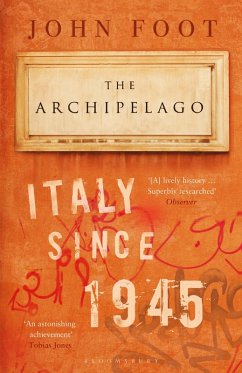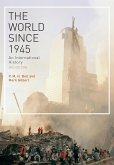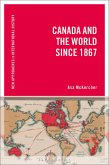'An enjoyable, highly readable history that manages to bring murky, often fiendishly complex events into the light' Sunday Times
Italy emerged from the Second World War in ruins. Divided, invaded and economically broken, it was a nation that some people claimed had ceased to exist. And yet, as rural society disappeared almost overnight, by the 1960s, it could boast the fastest-growing economy in the world.
In The Archipelago, historian John Foot chronicles Italy's tumultuous history from the post-war period to the present day. From the silent assimilation of fascists into society after 1945 to the artistic peak of neorealist cinema, he examines both the corrupt and celebrated sides of the country. While often portrayed as a failed state on the margins of Europe, Italy has instead been at the centre of innovation and change - a political laboratory. This new history tells the fascinating story of a country always marked by scandal but with the constant ability to re-invent itself.
Comprising original research and lively insights, The Archipelago chronicles the crises and modernisations of more than seventy years of post-war Italy, from its fields, factories, squares and housing estates to Rome's political intrigue.
Italy emerged from the Second World War in ruins. Divided, invaded and economically broken, it was a nation that some people claimed had ceased to exist. And yet, as rural society disappeared almost overnight, by the 1960s, it could boast the fastest-growing economy in the world.
In The Archipelago, historian John Foot chronicles Italy's tumultuous history from the post-war period to the present day. From the silent assimilation of fascists into society after 1945 to the artistic peak of neorealist cinema, he examines both the corrupt and celebrated sides of the country. While often portrayed as a failed state on the margins of Europe, Italy has instead been at the centre of innovation and change - a political laboratory. This new history tells the fascinating story of a country always marked by scandal but with the constant ability to re-invent itself.
Comprising original research and lively insights, The Archipelago chronicles the crises and modernisations of more than seventy years of post-war Italy, from its fields, factories, squares and housing estates to Rome's political intrigue.









